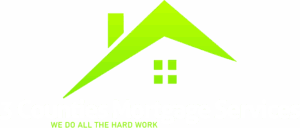Mortgage FAQs
I’ve put together answers to the questions clients ask most often. Whether you’re just starting out or looking to remortgage, these FAQs are here to help you understand the process and feel confident about your decisions.
Before applying, it helps to be prepared:
- Check your credit – Know your credit history so there are no surprises.
- Make sure you’re on the Electoral Roll – Lenders use this to confirm your identity and address.
- Gather documents – Payslips, bank statements, ID, and, if self-employed, tax info.
- Know your regular expenses – Bills, loans, and contracts. Having details ready makes the process smoother.
- Keep your address consistent – Make sure it matches on all your documents to avoid delays.
Here’s a quick overview:
- Fixed Rate – Your rate stays the same for a set period (2, 3, 5, or 10 years).
- Tracker – Follows the Bank of England rate plus a set margin, so your payments can go up or down.
- Variable Rate – Can change depending on the Bank of England rate or the lender’s own standard rate.
- Offset – Your savings reduce the interest you pay, but withdrawing them increases it again.
Two main types:
- Repayment (Capital & Interest) – Your monthly payments cover both the loan and interest, gradually reducing what you owe. By the end, the mortgage is fully paid.
- Interest-Only – Your payments cover only the interest, so the original loan stays the same. You’ll need a plan to repay the full amount at the end, like selling, remortgaging, or using savings.
The amount depends on your income, outgoings, credit history, and the lender’s rules. Lenders often offer 4–5 times your income, but they also consider debts, bills, and overall financial situation. A mortgage broker can help give you a clear idea using affordability tools based on your personal circumstances.
A mortgage is a loan to help you buy a property. You borrow money from a lender and agree to pay it back with interest over a set period—usually 25–30 years. The property acts as security, so if repayments aren’t made, the lender could repossess it.
Yes! You can:
- Pay it off in full if you have the funds (check for early repayment charges).
- Make extra payments to reduce the balance faster.
- Increase your monthly payments.
- Choose a shorter term when remortgaging.
Remortgaging is moving your mortgage to a new deal or lender. People often do it to:
- Get a better interest rate
- Switch from a variable to a fixed rate
- Release equity to renovate or consolidate debts
If money’s tight, contact your lender straight away. They might allow a short payment break, reduce monthly payments by extending the term, or switch to interest-only temporarily. Ignoring it can lead to arrears or, in the worst case, repossession.
These FAQs are designed to make mortgage terms and the process easier to understand. Think of them as a helpful guide to support you throughout your mortgage journey and give you peace of mind along the way.
*What you need to know about Check My File: you can download your credit report for free with a 30-day trial (usually £14.99 a month). You can cancel at any time but to avoid any subscription fees you must cancel before the end of your free trial. After clicking the link above, 3 Counties Mortgage Services may earn a small commission for validated trials or subscriptions at no extra cost to you. Information correct as at 9th January 2025.
